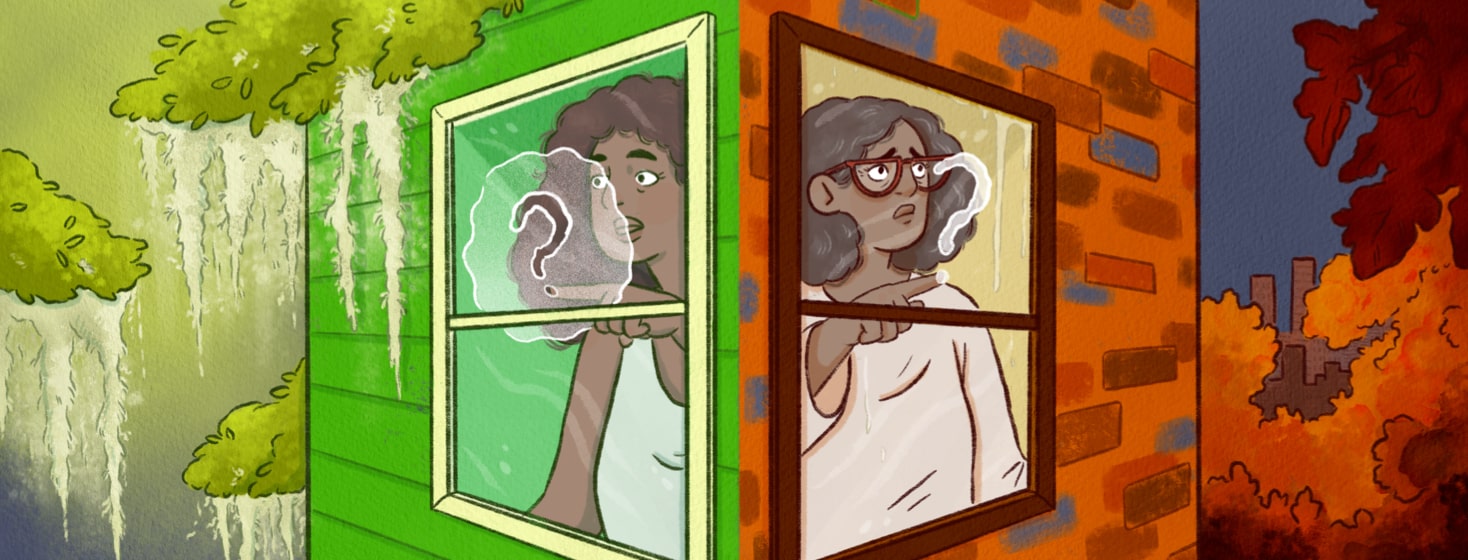The Depression Takes Root: Adolescence and My 20s
Content Note: This article describes suicide and self-harm. If you or a loved one are struggling, consider reading our mental health resources page.
I started smoking pot at 14 with friends from my high school softball team every day after practice, and when we hung out on the weekends. I was smoking to escape. To escape a chaotic home life with an alcoholic father who although sober by then, had been medicating his depression with Johnnie Walker Red.
When the booze dried up and the depression took over, he crawled into a darkened bedroom and rarely emerged. To escape a home where my mother was absent because she had to go to work to support our family. To escape my confusion about my sexuality as many of my teammates and closest friends were gay, and I began to wonder if I was, too.
Depression during college and my 20s
In college, I continued to smoke pot to cope with my anxiety at being away from home for the first time. I joined the basketball and softball teams so I could meet people and provide structure to my day with practices and games. I continued to question my sexuality and remained confused and silent as I didn't dare voice my jumbled thoughts to anyone. I managed to hold on academically, graduating cum laude with a degree in communications.
Following graduation, I discovered my degree equaled a job as a secretary in the real world. Eventually, I passed the typing test and was hired for a position at a mid-sized advertising agency in Manhattan. When I accepted the job, I felt like I was a failure. I was certain I'd let my parents down and I was wasting my college education.
Early career and questions about my sexuality
I was persuaded to join the company softball team that was part of the larger NYCASL (New York Co-Ed Advertising Softball League). We’d play ball after work in Central Park and head to a bar on the Upper East Side to party after the games.
Advertising and the 1980s equaled cocaine and I was no exception. I got hooked hard and fast as the coke imbued me with the ability to step outside of myself. I felt confident, I initiated conversations and I flirted with the guys as drinks in hand, we spilled out onto the sidewalk outside the bar.
None of the guys reciprocated and I stood on the sidelines watching people pair off. A friend suggested I enter therapy to deal with my "relationship issues." I was 23 years old and had never had a boyfriend. The therapist, Naomi, and I started with the basics. I learned how to match the vocabulary of feelings with the feelings themselves. Once the emotions lit up my brain, the feelings I'd been numbing for the past 10 years with the pot and the cocaine burst through the dam. A tsunami erupted, swallowing me in its fierceness.
My first suicide attempt in my 20s
I made my first suicide attempt late one night alone in my apartment by trying to cut my forearm. I didn't tell my therapist Naomi the next time I saw her, and I wore long sleeves until the cuts healed. I became enamored with cutting myself. This sensation of a sharp object tugging at my skin distracted me from the emotional pain. I no longer had to tolerate the brunt of my depression haunting my psyche. My anguish was transferred to my body. I developed an elaborate ritual around cutting that took me outside of my mind.
The depression and despair deepened
The despair permeated every aspect of my life. Naomi referred me to a psychiatrist for medication. This elderly psychiatrist who reminded me of Freud, told me he was prescribing an antidepressant, but we found out much later he'd prescribed a stimulant.
The stimulant decimated my appetite and my intake plummeted. Naomi and I continued to meet for the next 6 months. I lost an alarming amount of weight, so much that my life was in danger. I was emaciated. Naomi remained silent. The depression worsened as malnutrition ate away at my brain. My only respite came for the few seconds I stepped on the scale and saw that I continued to lose weight.
It was was time to surrender to treatment
On a freezing February day, just short of my 27th birthday, my mother picked me up at my apartment in Queens, New York. I curled up in the front seat, surrendering to the exhaustion, depression, and hunger. We drove an hour to New Jersey in silence, and she admitted me to an eating disorder facility. Later, when I asked her why so far away, she said she had called a lot of eating disorder programs and New Jersey was the only place that had a bed available immediately.
At that point in my life, conceding I needed treatment for the depression and the anorexia was the most difficult thing I'd ever done. I was no longer in control, but then again, I hadn't been in control for a long time.
"Who, if I cried out, would hear me among the Angels' Orders?" –Rainer Maria Rilke, The First Elegy
